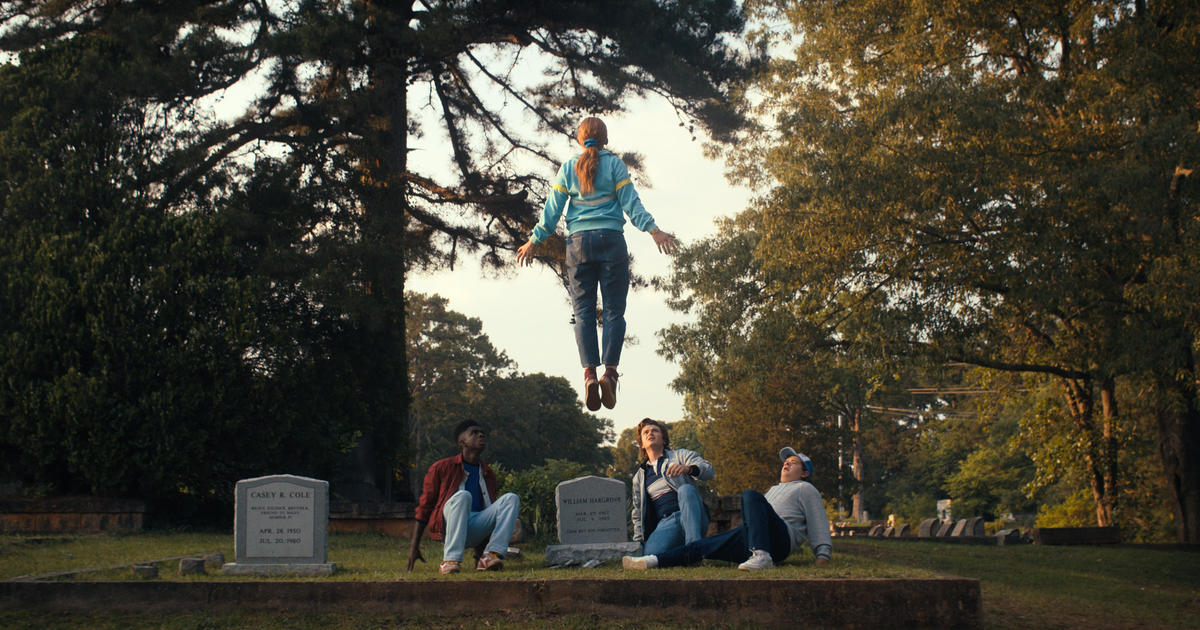Singer Kate Bush has garnered legions of new fans thanks to Netflix’s “Stranger Things” tapping her 1985 hit “Running Up That Hill” as a talismanic song for the character Max Mayfield.
It’s also brought her a financial windfall, delivering about $2.3 million in streaming royalties in the month since the show’s latest season was released, according to Luminate, which was formerly known as Nielsen Soundscan. Because she owns the copyright to her recordings, she’s likely keeping the bulk of that money, according to music industry publication Music Business Worldwide.
Bush noted in a June 17 blog post that the resurgence of the haunting song had put it “on top of that hill” and that its swift climb felt “driven along by a kind of elemental force.” It’s an unusual twist in the career of a musician who garnered critical acclaim but who hadn’t scored a top 10 hit in the U.S. — until this year, 37 years after “Running Up That Hill” was first released.
“While we’ve seen a notable increase in catalogue music streams in recent years — with an annual 20% growth alone in 2021— the Kate Bush story has taken the phenomenon to a new level,” said Rob Jonas, the CEO of Luminate, in a statement to CBS MoneyWatch.
From Kate Bush’s Running Up That Hill to the nightmare-inducing Mind Lair, Dear Billy is easily one of the most talked about episodes of Stranger Things ever.
Now, star Sadie Sink and director/EP Shawn Levy reveal how Max’s showdown with Vecna was brought to terrifying life. pic.twitter.com/3KAprAHoNK
— Netflix (@netflix) June 27, 2022
“Running Up That Hill” has become the most streamed song both in the U.S. and globally, he added. The $2.3 million in streaming royalties were generated between May 27 and June 23, although it’s likely that the song will continue to earn more, given that new episodes of the show were released on Friday, July 1, which could spark ongoing interest in Bush’s music.
“I just can’t believe it — No. 1 for the third week,” Bush wrote in a blog post on Friday. “In fact it’s all starting to feel a bit surreal.”
Bush didn’t immediately return a request for comment from CBS MoneyWatch.
Bush is unusual in the recording industry because she owns the copyright to her recordings, according to Music Business Worldwide. Because of that, she is likely keeping 80% or more of recorded music royalties generated by her recording masters, it noted.
